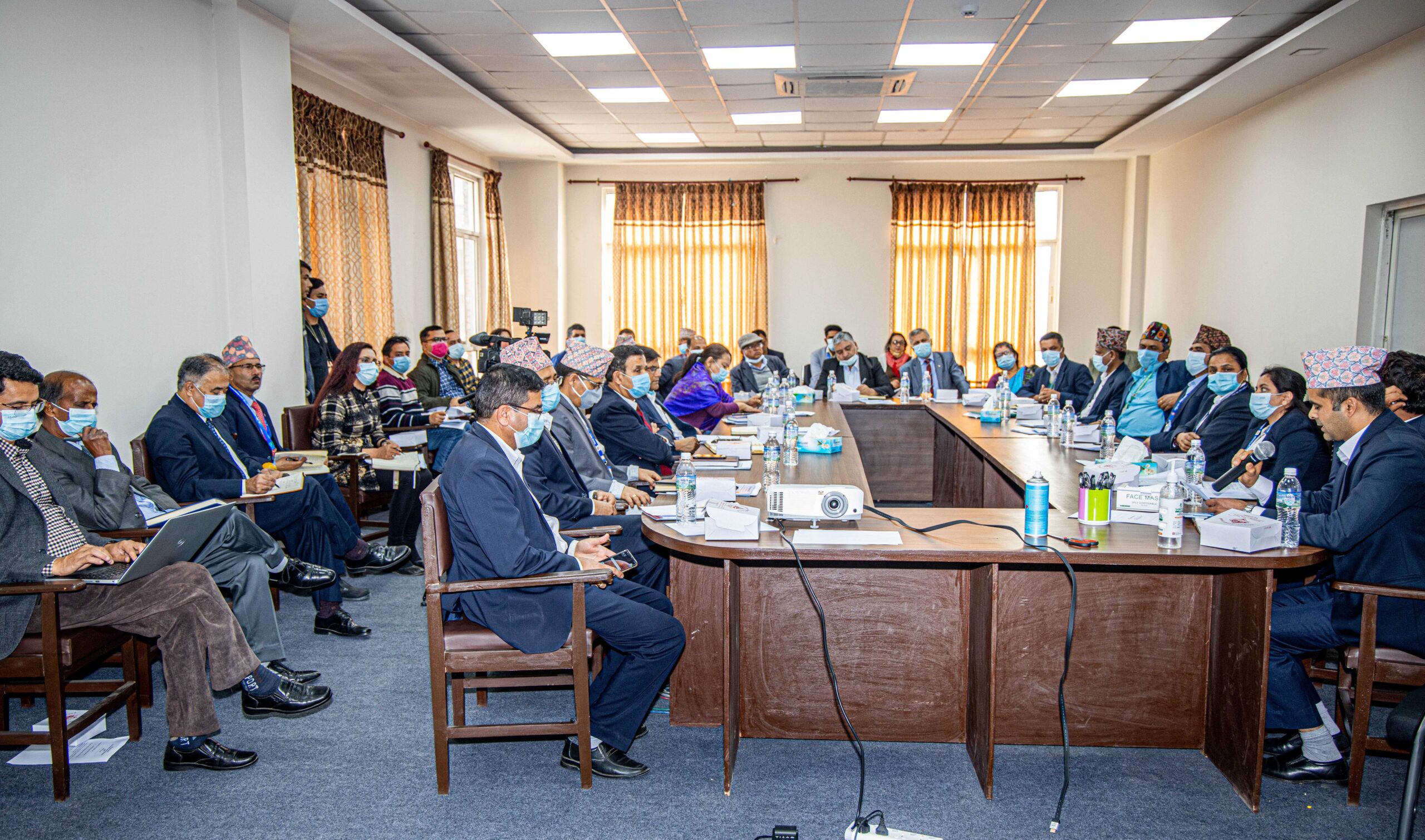
PRI Held Interaction with Joint Secretaries of Government Ministries and Constitutional Bodies
On 3 March 2021, PRI conducted a three-hour interaction with joint secretaries of various ministries, commissions and constitutional bodies of the Government of Nepal, including the Office of the Prime Minister and Council of Ministers, Ministry of Agriculture and Livestock Development, Ministry of Foreign Affairs, Ministry of Women, Children and Senior Citizen, Ministry of Water Supply, Ministry of Forest and Environment, Ministry of Communication and Information Technology, Ministry of Education, Science and Technology and the Ministry of Law, Justice and Parliamentary Affairs. Also present in the interaction were representatives from the National Women Commission, Election Commission, Office of the Attorney General, National Human Rights Commission, Commission for the Investigation of Abuse of Authority (CIAA) and National Dalit Commission.
The objective of the interaction was to explore areas of collaboration between PRI and these entities on policy research and share preliminary findings of the research that explored options to make annual programmes and policies of the government of Nepal more objective and implementable.
The interaction proceeded with a welcome note and a brief presentation on objectives and expectations by Dr. Bishnu Raj Upreti, Executive Chairperson of PRI followed by a brief presentation on PRI’s accomplishments by Dr. Mukunda Raj Kattel, the Head of Information and Knowledge Management Department of PRI and Dr. Deepak Kumar Khadka, Head of the Research Department of the Institution. Following the presentation, Mr. Kedar Bahadur Adhikari, former Secretary of the Government of Nepal and the lead researcher of the PRI research project entitled “A Study to Explore Ways to Make Annual Policies and Programmes of the Government of Nepal Objective, Harmonized and Implementable to the Extent Possible” presented major findings of the study.
Interacting in the programme, Joint Secretaries and Under Secretaries of the participating ministries and entities appreciated the interaction initiated by PRI and its programmatic focus that policy-making should be informed by evidences. Most of the speakers suggested that there is growing realization – within their institutions – of the need for research in policy-making. However, they lack professional expertise and dedicated human resources to spearhead research, manage institutional knowledge and systematically transfer it into policy processes. Putting forth their policy research areas that could be supported by PRI, the participants expected PRI’s expert input to transfer their experiences into policy innovation.
All the speakers emphasized that such discussions should continue to take place in future, and fully committed themselves to collaborative engagement with PRI.
